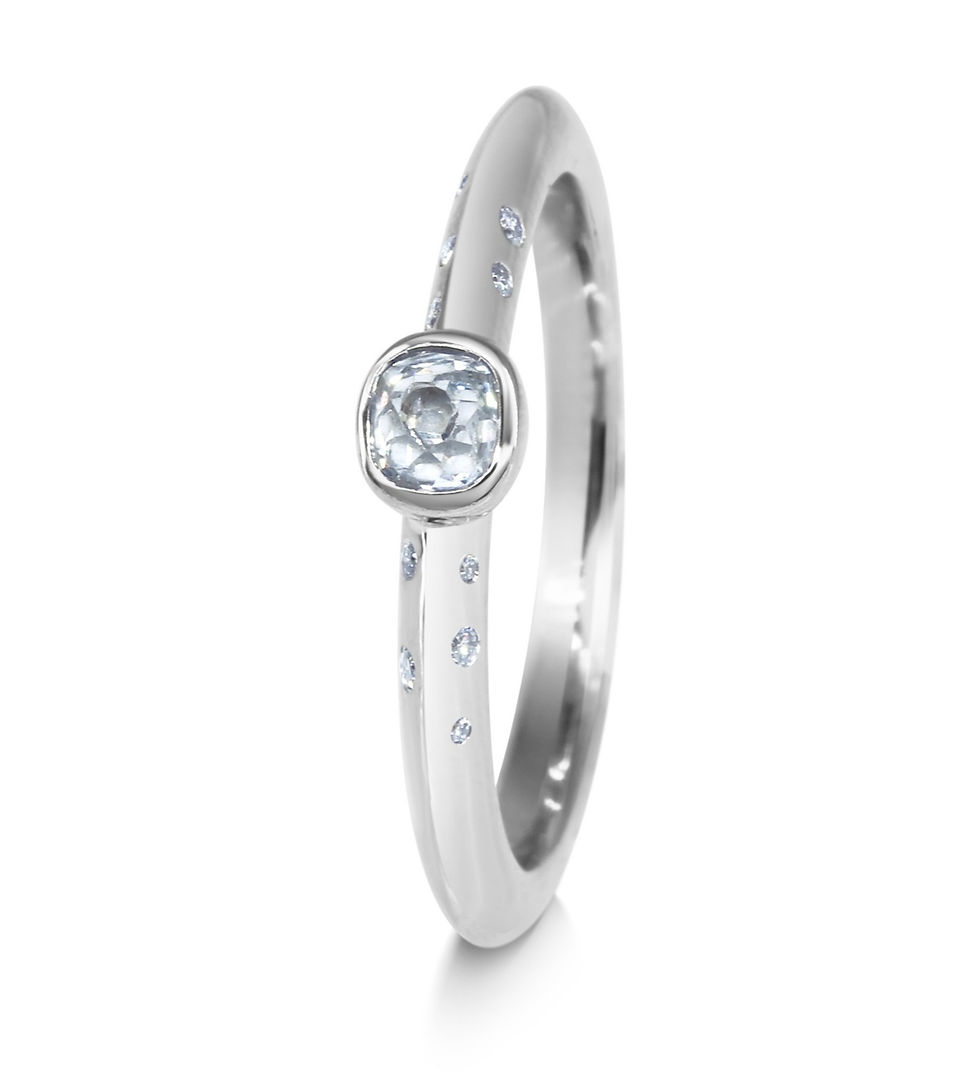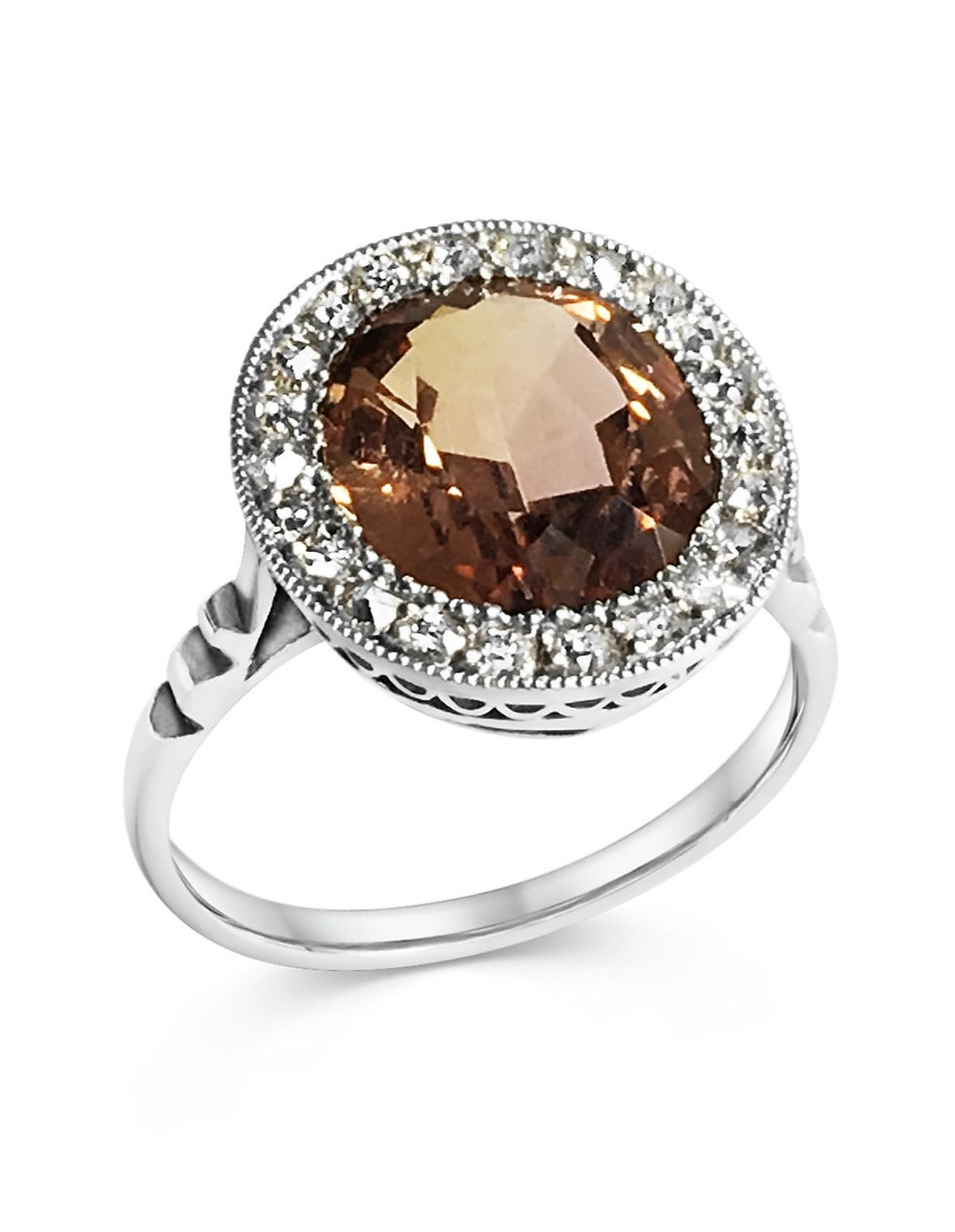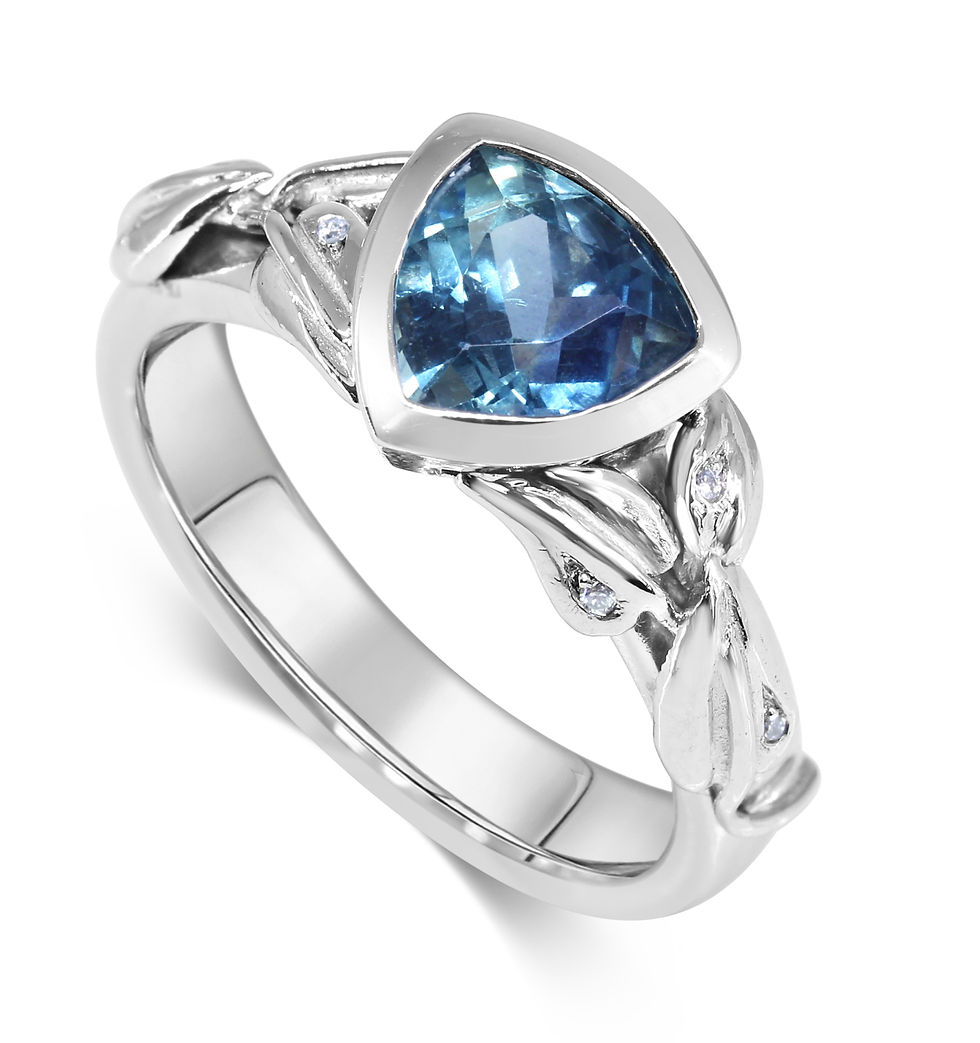- leonardoflondon
- Oct 31, 2020
- 5 min read
Time and again I hear jewellers saying "this ring is an investment", a "safe buy"
I have to say, I don't agree

Every now and again I see an article, that seems to have been written by someone angry with the jewellery industry, branding it a 'racket', most likely because they've tried to re-sell a ring that was branded an 'investment' when they bought it and have realised they can't get back what they paid for it.
If you are looking for an investment, don't think it will be a piece of commercial jewellery - anyone who tells you that what you are buying is an investment, isn't being entirely honest with you. If you are a jeweller, *please* don't try and sell a ring on this basis - it's unfair and reflects not too well on the rest of us. I feel that it should be about the quality, the message and the craftsmanship in terms of the ring that you buy.
Whilst it is true that a diamond will appreciate in value over time, it isn't likely that it will be worth more in the lifetime of you wearing it than what you paid for it.
But is that why you want to buy a diamond engagment ring? To invest your money? Honestly, you are better off using that money for a house deposit if you are looking for a financial return. But I hope that isn't the real reason you want one. I hope it's because you want something special and magical, a symbol to express the next step you are taking in your relationship.
If you think about most of the other items you purchase in a lifetime, once you have used it, you don't expect to be able to sell it on for more than you paid for it. Computers depreciate at a rate of knots, and we all know that a car loses 20% of its value the instant you drive it off the lot. So why are people expecting a diamond ring to be the opposite of this trend? I do feel that the jewellery industry has a lot to answer for with this misconception, with their suggestion that a retail product is an investment. An engagment ring is a very special and symbolic purchase, but that doesn't negate the fact that it is subject to the same markups and machinations of the retail environment. When you buy an item of jewellery from someone, they have made the piece from elements that are put together, or a piece they have sourced from a wholesaler, which is marked up to cover the costs of the retailer.

When you buy from a designer, they have spent a lot of time and effort on the design and manufacture of the piece for you, as well as taking a long time to source the perfect stone(s) for you and have spent time working with you to ensure that you are happy with the piece that they are making for you. This design and manufacturing process is very often time consuming and highly skilled; you are paying for this time as well as the materials apart from the diamond when you are paying for a ring. Therefore, even if you were to get the exact same money for the stone if you sold it, you still wouldn't be covering the costs of the metals, time and expertise involved in creating it in the first place. And quite honestly, it would be very difficult for someone to purchase a stone at the final retail price and be able to use it in another piece of jewellery, as the stone will then be too expensive to sell. A diamond has incremental price increases placed upon it as it goes through the supply chain, in the same way that pretty much every other item we purchase does.
So why buy a diamond if not for investment purposes? Don't get me wrong, I LOVE diamonds, like LOOOOVE them, and I still hold that they are by far the best stone for engagement rings, DeBeers campaigns be damned (yes, it was a concerted campaign by the DeBeers companies to create this insane and pervasive demand for diamond engagement rings, but don't let that put you off). If the campaign didn't have some truth to it, it would not have become what is widely acknowledged as the most successful marketing campaign of all time.
“Practically, a diamond is a great choice (in my humble opinion) for a number of reasons”
Hopefully, you will be wearing this ring every day for a long time. You may also want to wear other rings from time to time, and as a clear, mostly neutral coloured stone it will go with any other jewellery that you want to wear.
Diamonds are unique. They are the hardest natural substance known to man, so are far less prone to surface scratches than other stones. If, like me, you are a bit more clumsy with your jewellery, then diamond is a more practical choice. Their internal refraction is also different - a diamond will sparkle if the only light reaching it was coming from the top surface of the stone, whereas other stones need light from the side or underneath to really sparkle.

What about other stones?
I love ALL gemstones, diamonds are my enduring favourite, but that doesn't mean there aren't other stones that are great as engagement rings.
There are some things that you need to consider if you are looking at having another stone:
Hardness with diamond being the hardest stone, all other gemstones are softer. If you are looking to have a different stone, please check its hardness on the Moh's scale of hardness to be sure that you are looking at a hardness of at least 7.5 and above (I prefer 8 at the lowest). And it's worth noting that even though sapphire is a 9 on the Moh's Scale, it is significantly softer than diamond.
Refraction with diamonds are internally refractive, and other stones are not. This means that to get certain designs to look their best, they may need to have a slightly different design to allow the light into the stone
Colour white diamonds are neutral, other stones are a variety of colours. Think about your clothes, your other jewellery and skin tone. What colours will go with all of these?
Ethical implications there is understandably a lot of concern about 'Blood Diamonds' in the public consciousness, but there is very little understanding of the risks and conditions of mining all other gemstones to the miners, their families and their communities. Don't assume that anything other than a diamond is ethical, because it simply isn't the case.

Ultimately, please don't focus on an engagement ring as a sound investment of your capital. If you are using that reasoning in order to stretch to something you just can't really afford, talk to a designer about how you can achieve something a close as possible to what you want, at a more manageable price.
This should be an expression of love, of hope, and of the promise of a future life together. And that shouldn't come with a percieved price tag.









